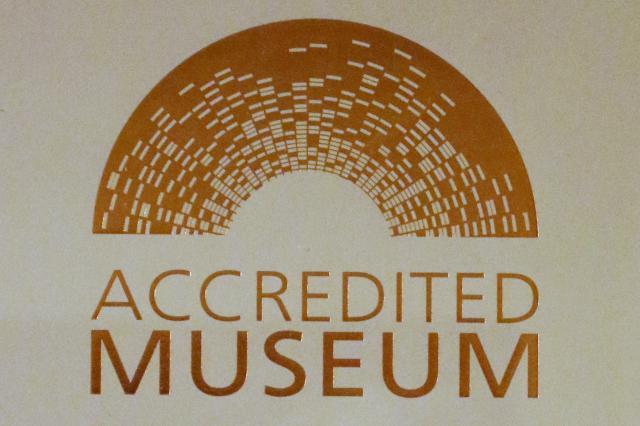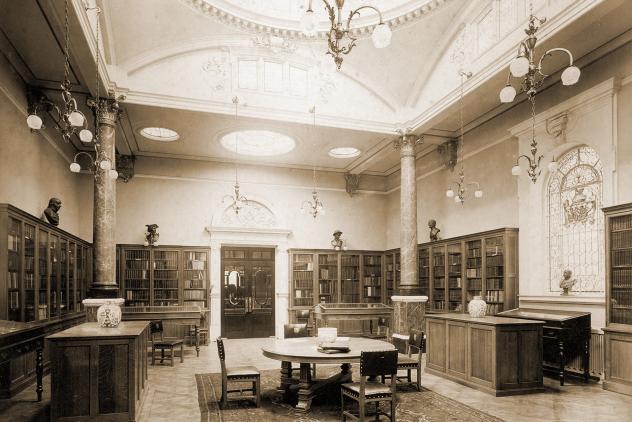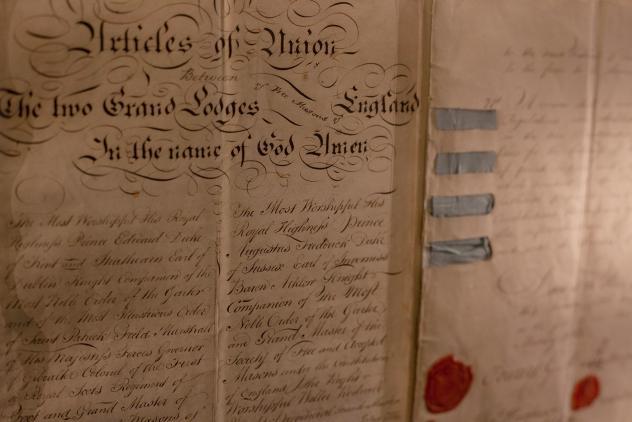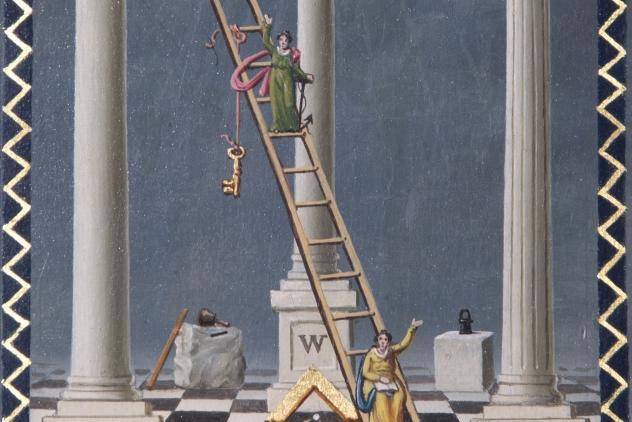In October last year, we were extremely proud to announce that we had retained our Accredited Status for a further 5 years.
The Accreditation scheme is administered by Arts Council England on behalf of the UK Accreditation Partnership, and is the benchmark for well-run Museums and Galleries. It sets nationally-agreed principles and enables museums to assess their current performance, as well as supporting them to plan and develop their services.
The scheme covers three broad areas: organisational health; collections; and users and their experiences. In particular, museums applying for the scheme must comply with the UK collection management standard Spectrum, set out by the Collections Trust. There are nine primary collections management procedures that are essential for gaining accredited status for any museum.
Our re-accreditation demonstrates that the Museum of Freemasonry is properly managed, and governed to the nationally agreed industry standards. It recognises that we take proper care of our collections, sharing them with visitors and are successfully keeping them safe for future generations.
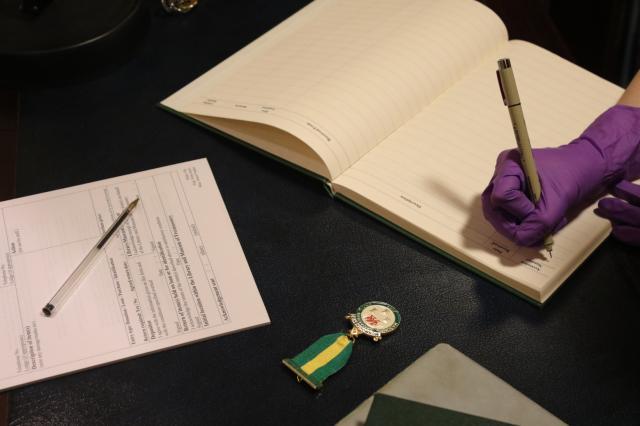
Accreditation is first and foremost for Museums, however as the Museum is a tri-domain collection - meaning it is comprised of three individual speciality areas (Library, Archives and the Museum) - they are all encompassed in the award.
Our Library has 50-60,000 items, including books, periodicals, manuscripts, sheet music, audio-visual material and electronic media relating to freemasonry, other fraternal societies and mystical and esoteric traditions, from around the world, in English and other languages. The Archive collection covers 3.25 linear kilometres and includes documents, prints, drawings, films, private papers, audio-visual material and digital assets. Lastly the Museum collection consists of approximately 30,000 objects related to freemasonry and other fraternal societies, from the United Kingdom and around the world. This might seem like a lot of items, but rest assured the team here knows exactly where each and every item is at Freemasons’ Hall. Our record keeping is second to none!
Accreditation also opens up exciting funding opportunities, allows museums to host touring exhibitions and gives access to professional museum advice and support. Additionally it gives confidence to donors and sponsors who may wish to support the museum in preserving heritage and inspiring future generations.
Museums of all types and sizes are covered by the scheme - from the smallest volunteer-run museums to national museums - and more than 1,700 museums are currently taking part across the UK.
We first achieved accredited status in 2009 and some other masonic museums around the UK have likewise achieved this accolade. These are the Kent Museum of Freemasonry, Warrington Museum of Freemasonry and Worcester Masonic Library and Museum.
Retaining the award has not been easy though. We were invited to submit all of our updated paperwork to the Arts Council in February 2020, which happily we achieved. However then disaster struck in the form of Covid19 and lockdowns. Thankfully the Arts Council England extended the full status of all UK accredited museums throughout the pandemic, so we were able to retain our award.
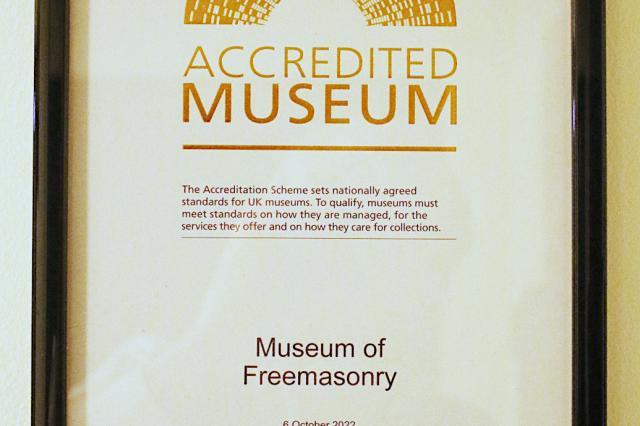
As the Collections Manager and Registrar for the Museum of Freemasonry, I am responsible for ensuring that our Collections Management policies, procedures and plans are up to date and being adhered to. During this process I have updated five plans, four policies and carried out an in-house security review. It has meant working closely with the whole Museum team, staff of the United Grand Lodge of England and the Trustees of the Museum as well.
The most important documents that we submitted and that required a complete overhaul was our Emergency plan, which I worked on with Simon Tansley, Visitor Service Manager for UGLE. Essentially Simon and I started from scratch with this and now we have a 124 page document, so should a disaster large or small happen, the Museum team will be prepared.
Accreditation is a continuous process, so the work we have set out to do in all our current plans is ongoing. In five years’ time we will be invited to resubmit updates about our achievements and hopefully we will be able to celebrate this success again for this world leading masonic collection of national and international importance.
